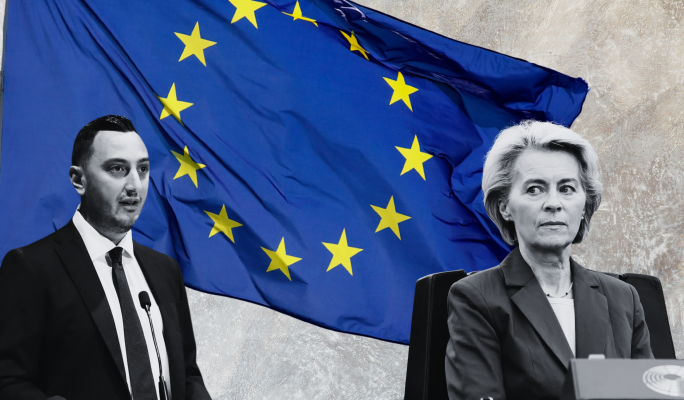Portfolios held by Maltese commissioners
Joe Borg (2004-2009) – Maritime affairs and fisheries (Article 4 competencies and Article 3 for conservation of marine biological resources)
John Dalli (2009-2012) – Health and consumer policy (Article 4)
Tonio Borg (2012-2014) – Health and consumer policy (Article 4)
Karmenu Vella (2014-2019) – Environment, maritime affairs and fisheries (Article 4 and Article 3 for conservation of marine biological resources)
Helena Dalli (2019-2024) – Equality (although equality is not mentioned in the areas of competence, it is a core value of the EU enshrined in Articles 8 and 10)
Glenn Micallef (2024-2029) – Intergenerational fairness, culture, sport and youth (Article 6)
Mission letter
Micallef’s mission letter penned by Von der Leyen outlines the work he is expected to focus on in the coming five years if approved by parliament.
In the first 100 days, he is expected to coordinate the first in a series of annual policy dialogues for young people. This initiative falls squarely within Micallef’s role of giving “young people greater freedom and responsibility”.
The Maltese commissioner-designate will also help set up the President’s Youth Advisory Board to advise on issues that matter to peers in their community and act as a sounding board for ideas developed by the Commission. He may very well take a leaf out of the Maltese government’s own Youth Advisory Forum, which was set up by the Office of the Prime Minister last year.
A more significant task will be to “focus” on the impact of social media and excessive screen time on young people. “You will lead the work on an action plan against cyberbullying,” Von der Leyen told Micallef in her letter.
Micallef is also tasked to develop a new “cultural compass”, which will take the form of a “strategic framework to guide and harness the multiple dimensions of culture”.
And in sport, Micallef will be the EU’s ambassador at large engaging with partners around the world.
He will be working under the guidance of the executive vice-president for people, skills and preparedness, a portfolio handed to Romanian nominee Ruxana Minzatu.
Culture, sport and youth are undoubtedly important policy areas with social, health and economic implications. However, Micallef the EU commissioner will carry very little clout on the European stage because competency for these areas lies with national governments.
This is why we said Malta bagged a weak portfolio and for no other reason.
***
EU competencies
EU competencies are outlined in the Treaty on the Functioning of the European Union. Source EU official website.
Exclusive competence: Article 3
Customs union; establishing competition rules necessary for the functioning of the internal market; monetary policy for the Member States whose currency is the euro; the conservation of marine biological resources under the common fisheries policy; common commercial policy; and conclusion of international agreements when provided in legislative acts of the Union or necessary to enable the bloc to exercise its internal competence.
Shared competence: Article 4
The Union shares competence with the Member States where the Treaties confer on it a competence which does not relate to the areas referred to in Articles 3 and 6.
Shared competence between the Union and the Member States applies in the following principal areas: Internal market; social policy, for the aspects defined in this Treaty; economic, social and territorial cohesion; agriculture and fisheries, excluding the conservation of marine biological resources; environment; consumer protection; transport; trans-European networks; energy; area of freedom, security and justice; and common safety concerns in public health matters.
In research, technological development and space, the Union shall have competence to carry out activities, in particular to define and implement programmes; however, the exercise of that competence shall not result in Member States being prevented from exercising theirs.
In the areas of development cooperation and humanitarian aid, the Union shall have competence to carry out activities and conduct a common policy; however, the exercise of that competence shall not result in Member States being prevented from exercising theirs.
Coordination: Article 5
The Member States shall coordinate their economic policies within the Union. To this end, the Council shall adopt measures, in particular broad guidelines for these policies.
Specific provisions shall apply to those Member States whose currency is the euro.
The Union shall take measures to ensure coordination of the employment policies of the Member States, in particular by defining guidelines for these policies. The Union may take initiatives to ensure coordination of Member States’ social policies.
Support, coordinate and supplement: Article 6
The Union shall have competence to carry out actions to support, coordinate or supplement the actions of the Member States. The areas of such action shall, at European level, be: Protection and improvement of human health; industry; culture; tourism; education, vocational training, youth and sport; civil protection; administrative cooperation.
Source link : http://www.bing.com/news/apiclick.aspx?ref=FexRss&aid=&tid=66f2cf2f316d457c9297f6eac35e3e90&url=https%3A%2F%2Fwww.maltatoday.com.mt%2Fnews%2Fnational%2F131326%2Fmalta_got_the_short_end_of_the_stick_in_von_der_leyens_team_and_this_is_why&c=8499409131460627123&mkt=en-us
Author :
Publish date : 2024-09-22 21:40:00
Copyright for syndicated content belongs to the linked Source.
